Best Golf Drivers For Distance 2025
In this piece, we review and compare a number of the best golf drivers for distance

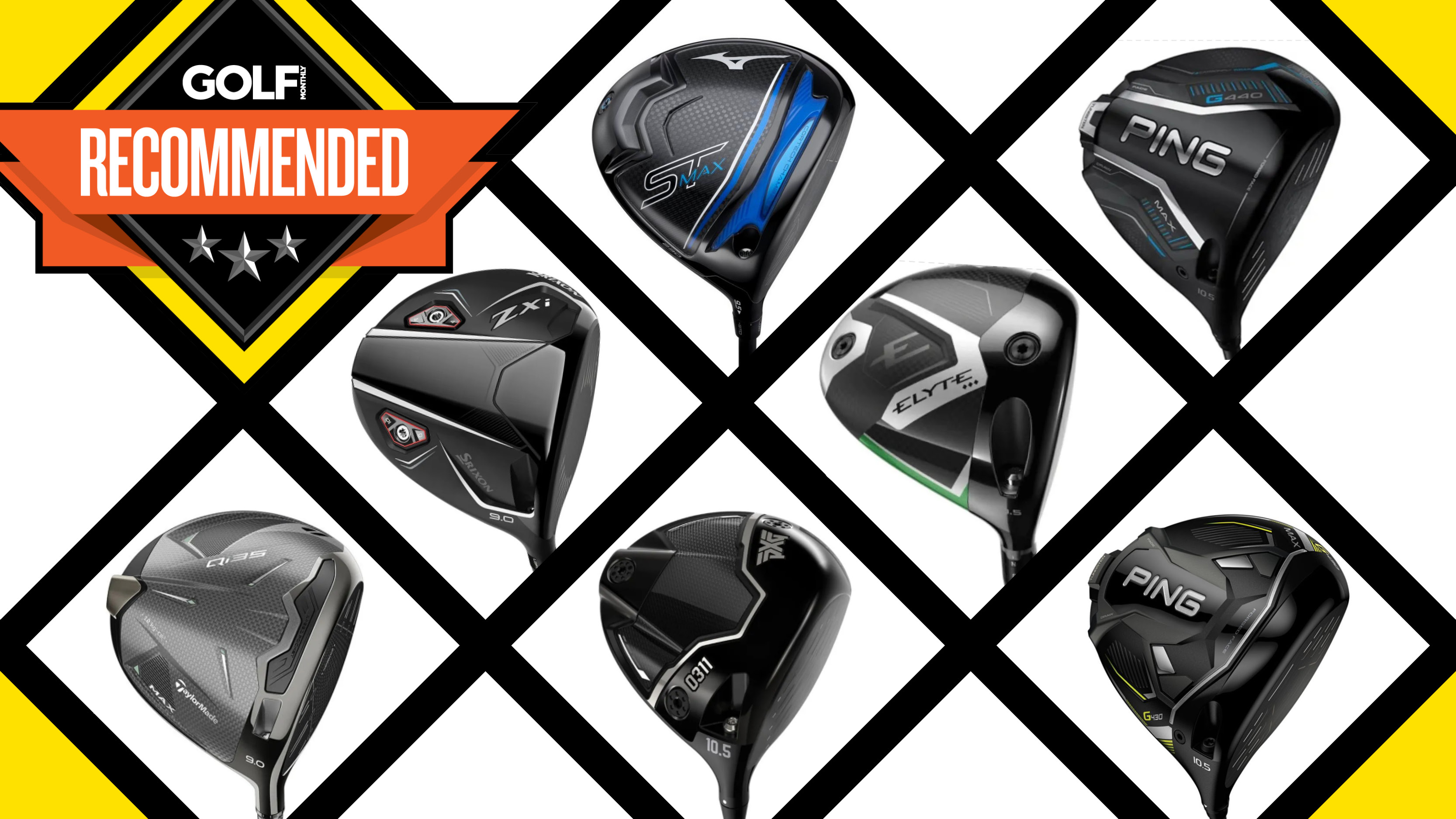
What makes a driver ideal for distance? It depends on the golfer and their level because, as weird as it sounds, not all of the best golf drivers are built purely for maximizing distance.
Ultimately, you want to find the best optimization of launch possible while making sure the spin characteristics are where they should be because, if your driver spin rate is too high, it will balloon in the air and lose distance.
WATCH: Joe Ferguson tests and compares the leading drivers on the market in 2025
As mentioned above, lower spin is a key ingredient for longer drivers, so we've highlighted some of the low spin models that achieve this through head shape and weighting. However, this sort of set-up won't suit every golfer and it's important to point out that the lower spinning, more compact heads in the drivers listed below are mostly aimed at better ball-strikers. This means they are much less forgiving than the most forgiving drivers or best drivers for beginners for example.
Be assured that our expert club testers have personally tested every model listed below, and feel free to read the full reviews if you want to take a deeper dive into any of the models we've chosen. Our reviews usually include comparisons to older models as well as other models in the current ranges to help you decide which driver is best for you. Also, be sure to check out our other guides - such as the best golf drivers for mid handicappers, or the best high handicap drivers.
The Quick List
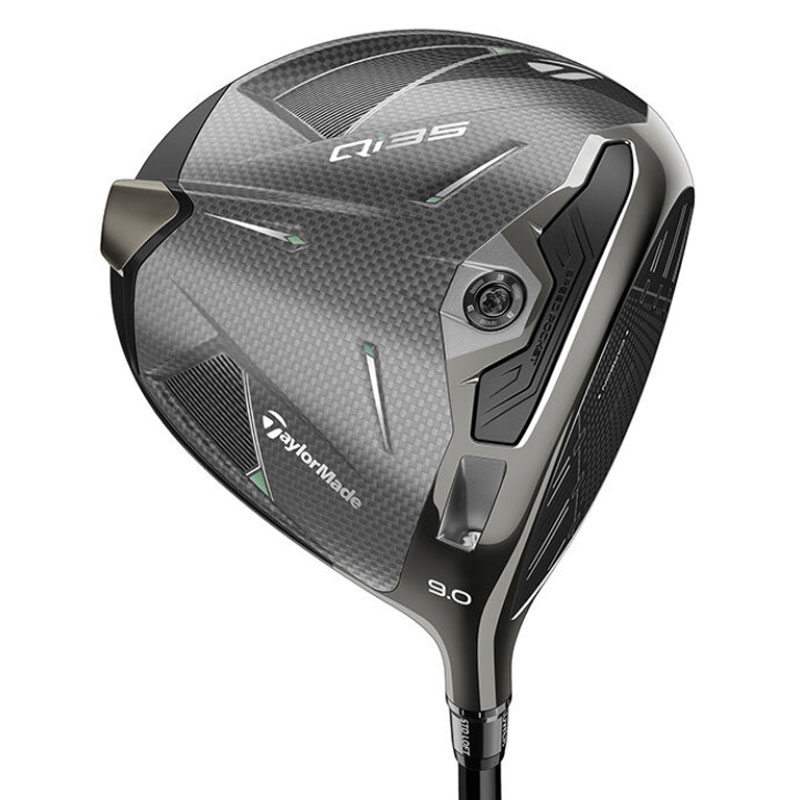
The Qi35 is TaylorMade's premier driver for 2025 and has already proven incredibly popular amongst both professional and amateurs. It delivers a powerful feel, great customization options and explosive distance.
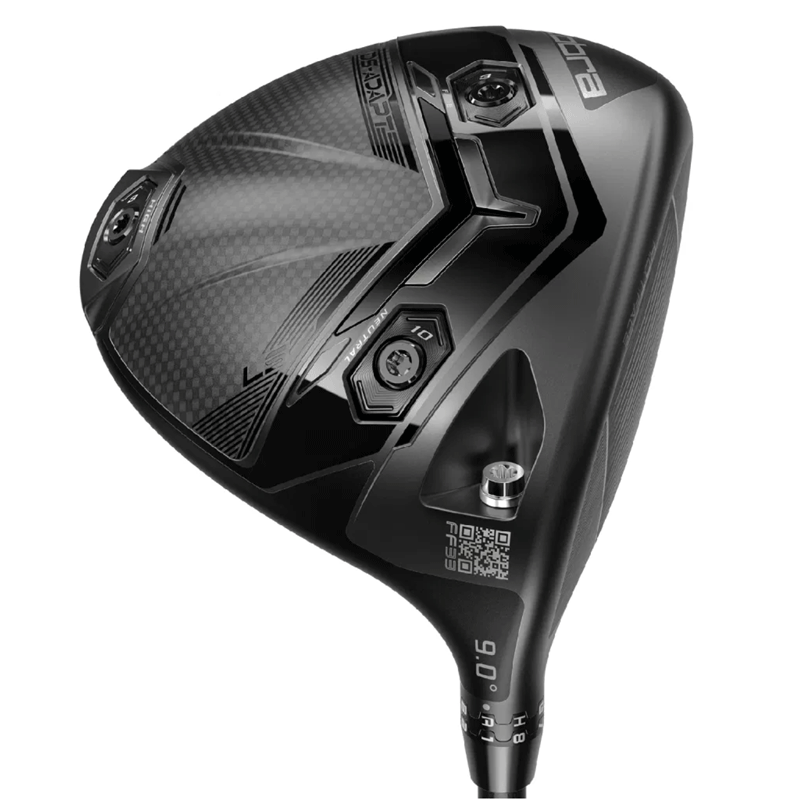
The LS is the lower spinning driver in the very impressive DS-ADAPT family and features a game-changing adjustable hosel that allows for incredible levels of adjustability.
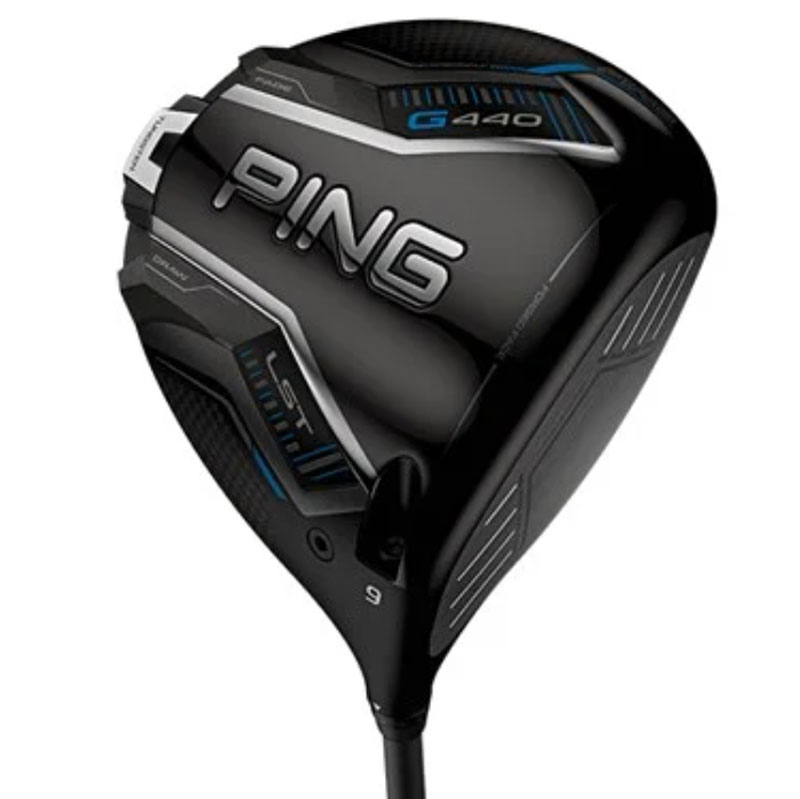
The LST, again, is the lowest spinning driver in the G440 range which means it delivers serious distance. Not only that but the looks, feel and forgiveness are more than commendable.
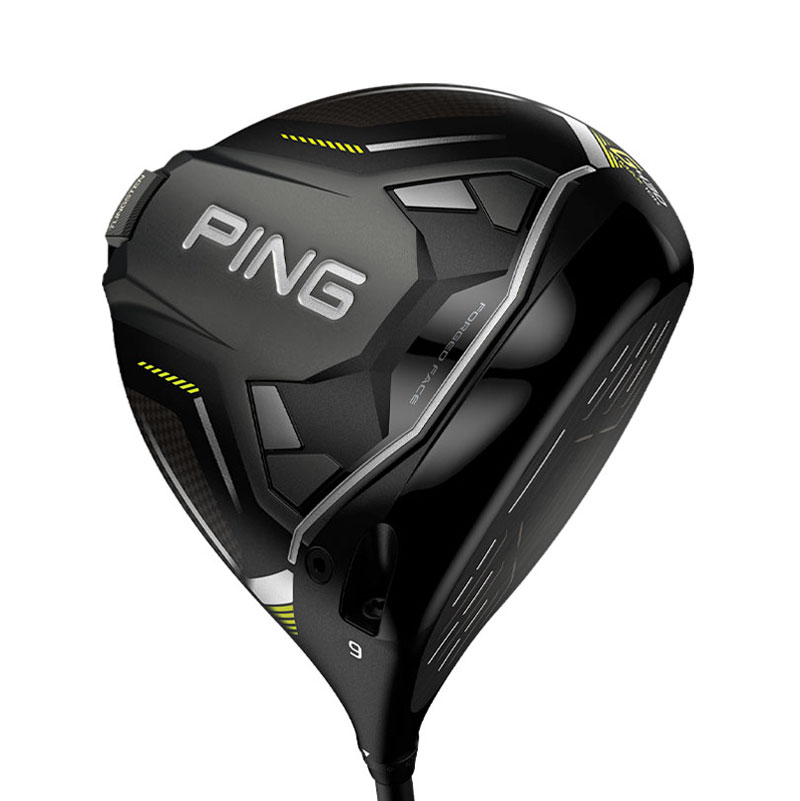
The G430 Max 10K is genuinely an outstanding driver because of how it combines incredibly forgiveness with high ball speeds and low spin. It's one of the best drivers money can buy.
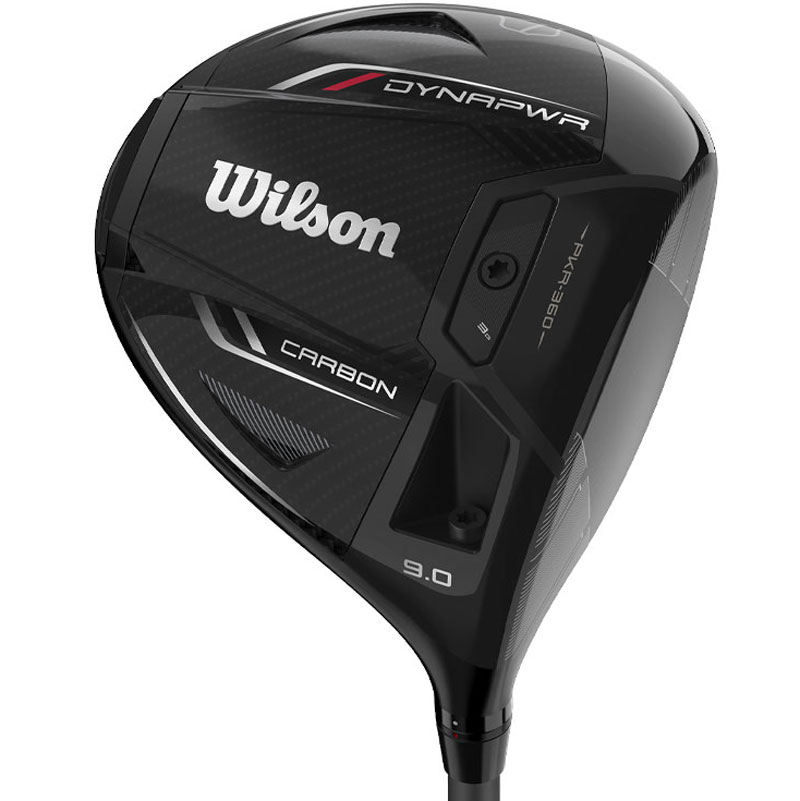
Wilson have seriously upped their game in recent years and their Dynapower Carbon driver is an example of that, delivering good distance off the tee and a budget-friendly price tag.
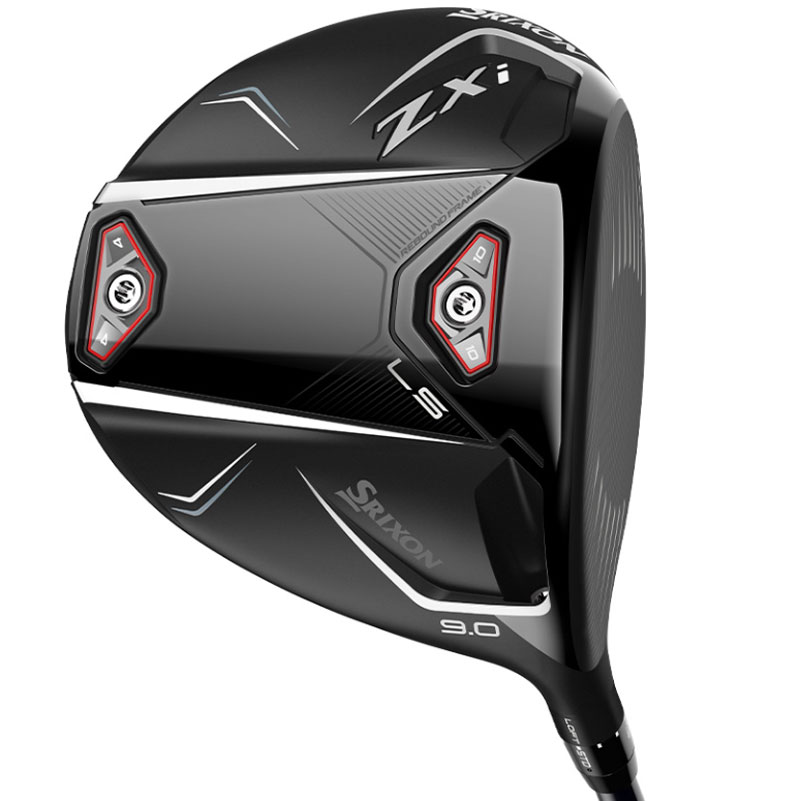
A left-field contender for driver of the year is any of Srixon's ZXi range but for this distance guide we've included the LS, the lowest spinning and longest of their 2025 driver family which looks as good as it performs.
Load the next 4 products
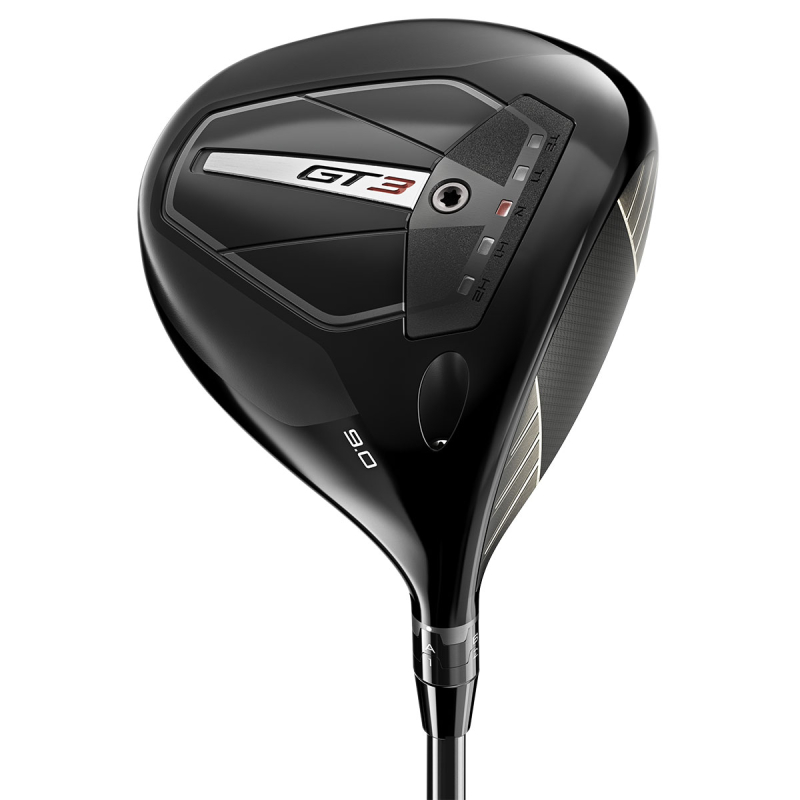
No surprises here but the latest range of GT drivers from Titleist are superb, the longest of which is the GT3. Acoustics, looks and ball speeds are exceptional whilst the forgiveness is high enough to give players of all abilities confidence.
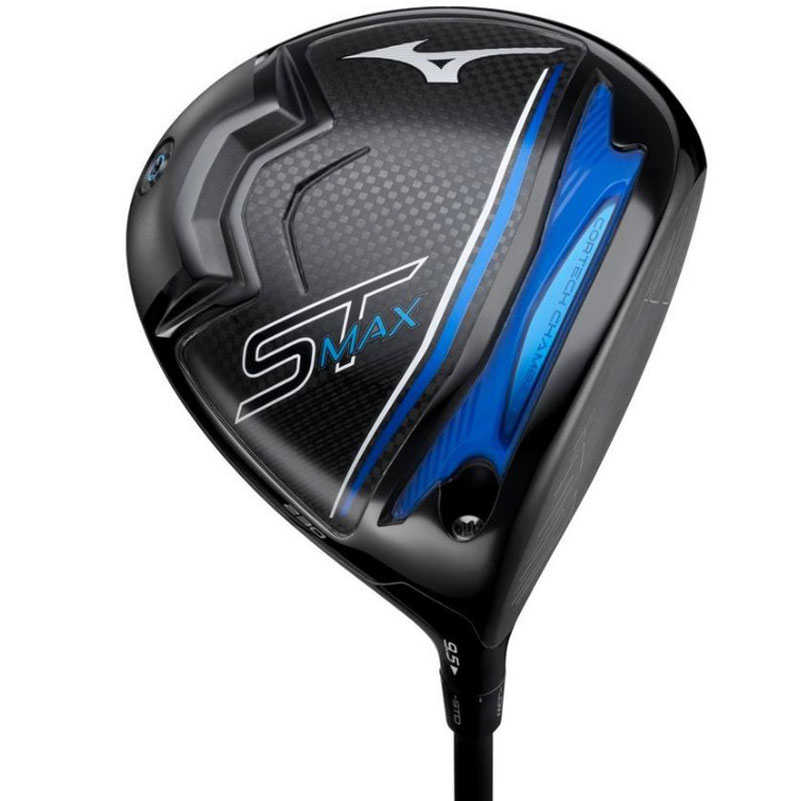
If you're looking for a driver than spins a bit more than usual, the ST-Max 230 from Mizuno could be the one for you. It delivers a satisfying feel that will appeal to many players whilst it gets a flying grade when it comes to looks.
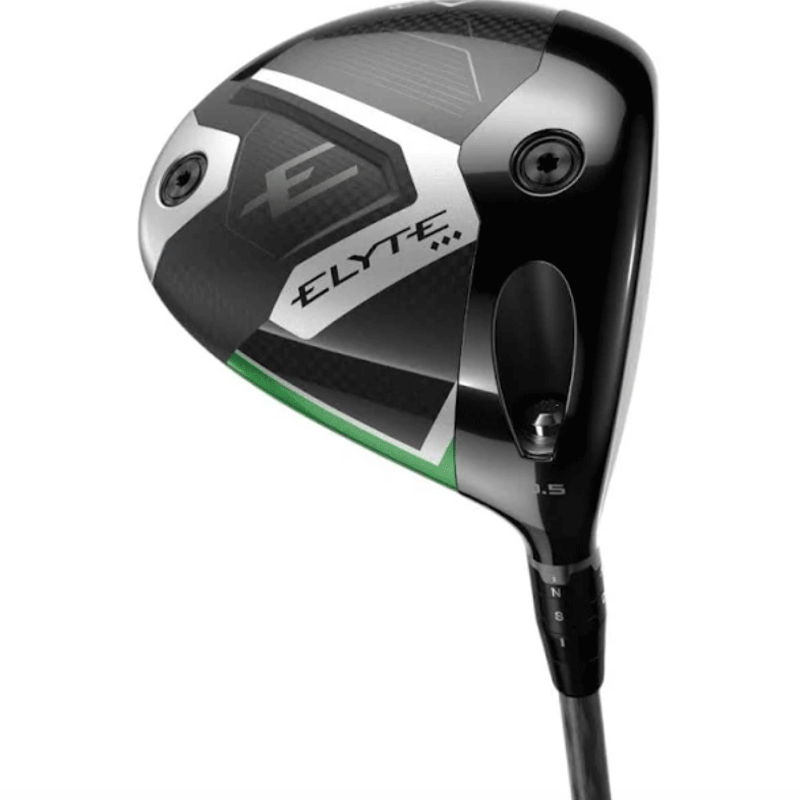
The Triple Diamond is the lowest spinning option in the new Elyte range, adding enhanced forgiveness to combine for one of the best drivers for distance of 2025.
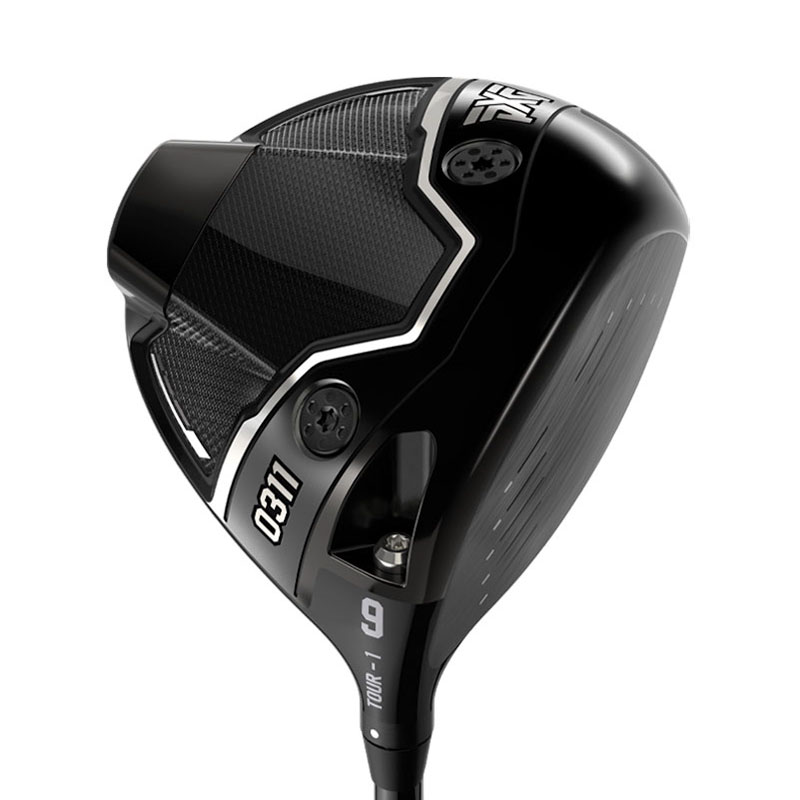
The 0311 Tour-1 is our top pick for low spin players and in testing it produced exceptional distance. We loved the acoustics and feel too, while the improved aesthetics are outstanding too.
Best Golf Drivers For Distance
Top pick
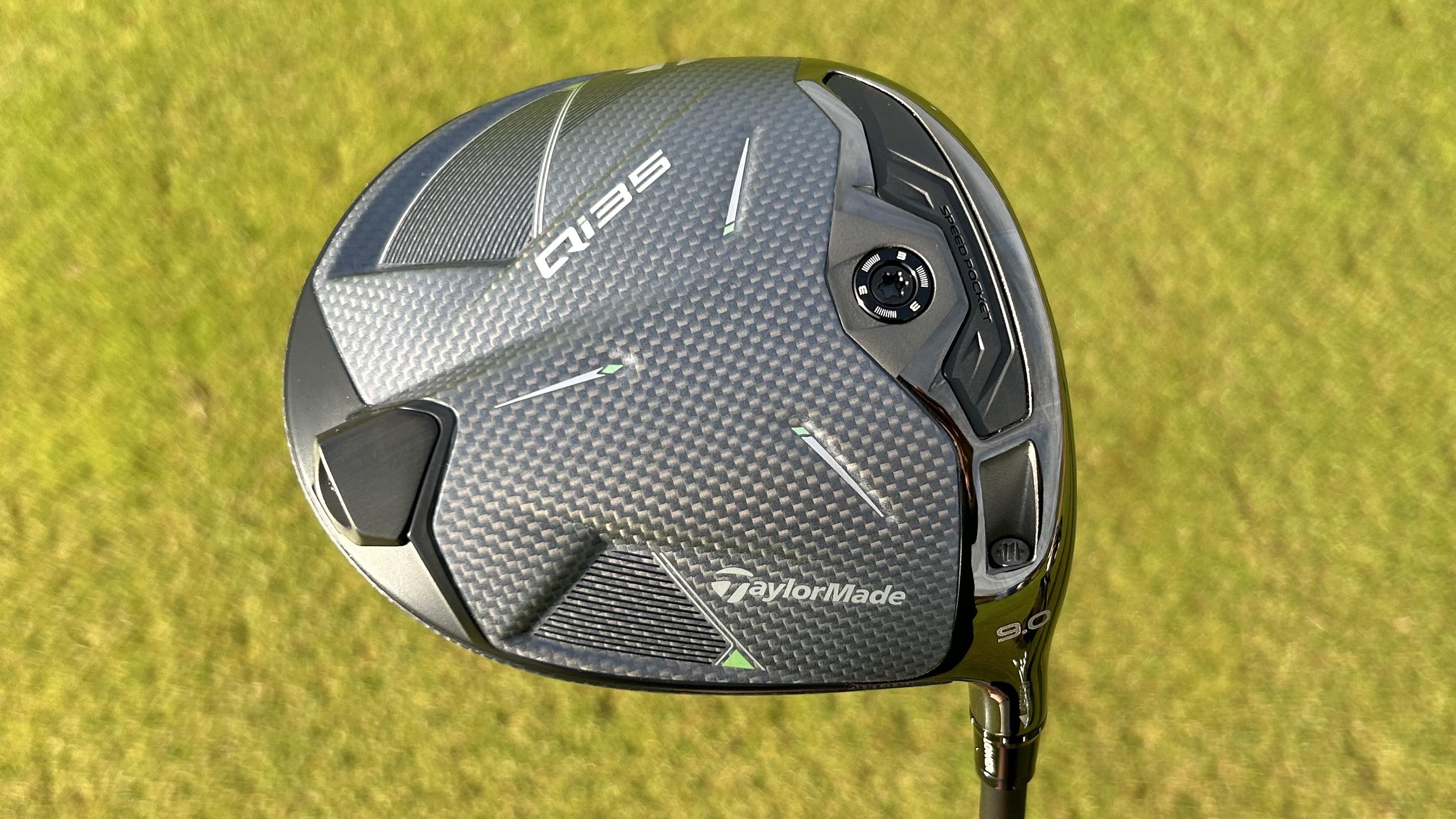
Specifications
Reasons to buy
Reasons to avoid
The standard model in the new Qi35 range from TaylorMade features two adjustable weights in the sole that can be switched to fine-tune launch and spin, a high-tech matte finish that looks like the inside of a supercar and brand new CG technology to enhance performance.
The Qi35 gains its distance thanks to the new increased 'area of opportunity' of the club face, achieved by a new lower CG Taylormade believe this allows the user more chance of achieving optimal flight conditions and extra distance as a result.
There is a more lively feel off the face comapred to the Qi10 which will please those looking for extra distance off the tee. The feel is complimented by a higher-pitched acoustic that adds to the powerful sensation and sounds superb, especially if you play a tree-lined course.
The adjustability will also be appreciated by the tinkerers out there, especially given it can be adjusted into what I like to call the 'beast mode' to gain extra distance. During testing I adjusted the weighting to drop RPM and increase overall distance which did increase my dispersion a little but it was worth it in terms of the distances I was hitting the ball. Overall then there’s genuinely not much I don’t like about this driver.
- Read our full TaylorMade Qi35 Driver Review
Best adjustability
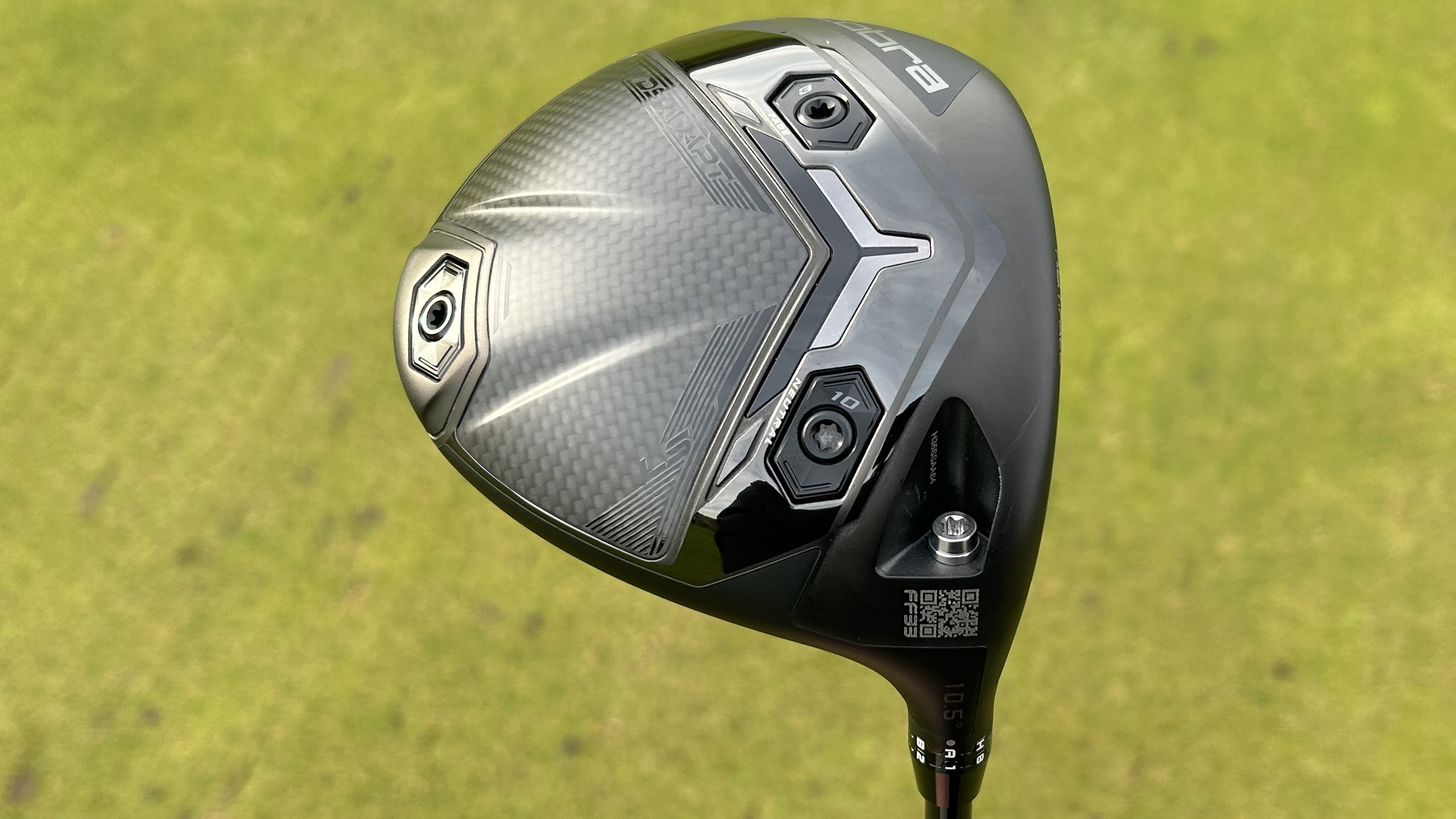
Specifications
Reasons to buy
Reasons to avoid
The lowest spinning driver in the DS-ADAPT family if the LS which is perfect for gaining as much distance from the tee as possible. During testing we struggled to get spin rates over 2000 which means this is an excellent option for those who often play in windy conditions due to the more penetrating ball flight produced.
The DS-ADADPT LS has big shoes to fill after the success of the Darkspeed LS the year before but we found this version actually had more playability and forgiveness than the Darkspeed. We were also glad to find that feel of the LS was fantastic - a common them across the entire DS-ADAPT family. Acoustics were lovely and the feel was lively without feeling too harsh. Also, the unique FutureFit33 adjustable hosel is one of the most unique pieces of tech on the market, allowing players to fine tune their driver into 33 different flight and workability settings for the ultimate fine tuning experience.
We absolutely loved the previous Darkspeed LS driver from Cobra, believing it really set a standard for competitors in the market to attempt to match 0 the DS-ADAPT LS has only raised this bar.
- Read our full Cobra DS-ADAPT LS Driver Review
Best tech
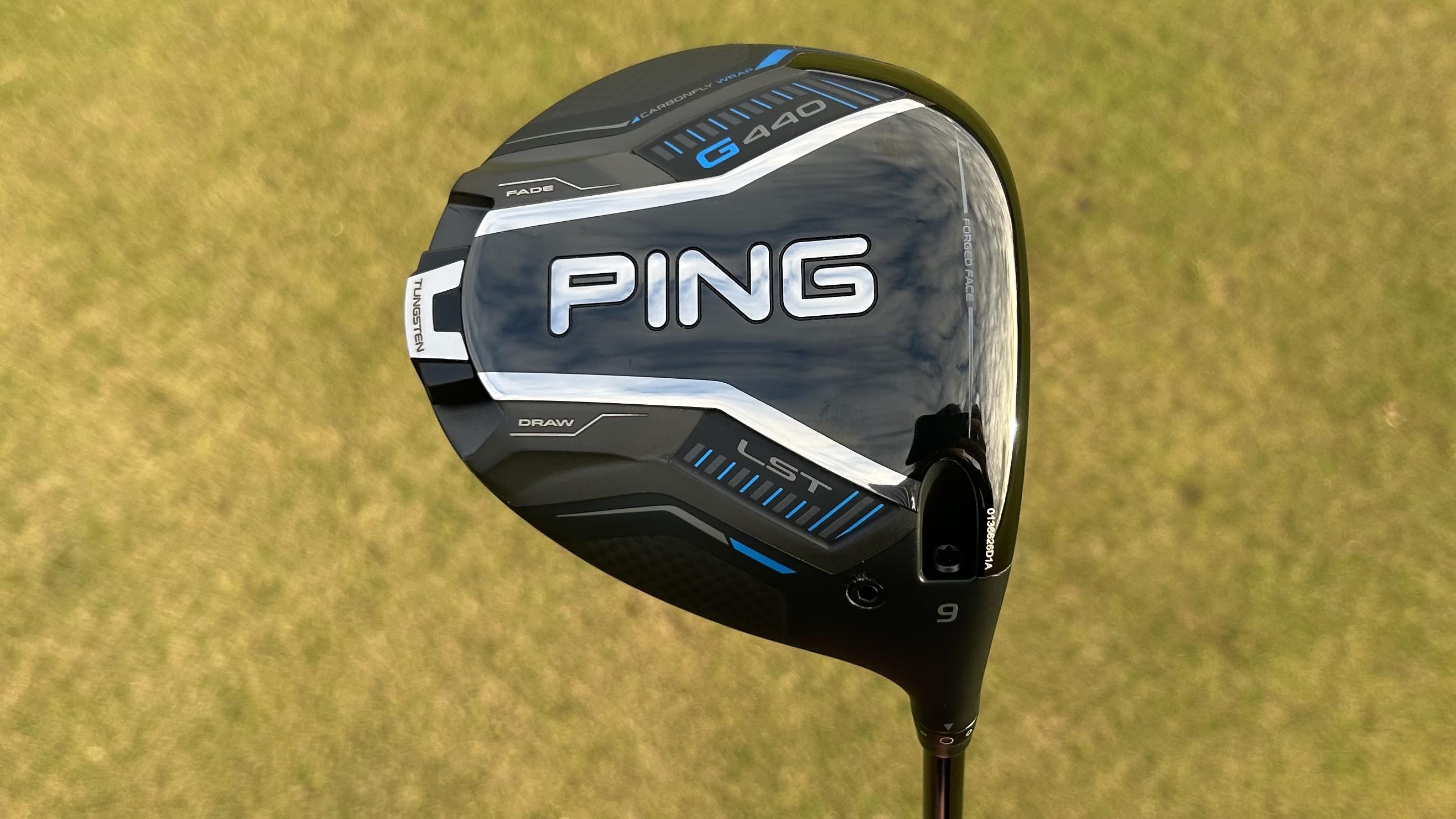
Specifications
Reasons to buy
Reasons to avoid
I was blown away at the performance of the Ping G430 LST in 2024 and thus was very excited to get my hands on the 2025 model. I also knew to temper expectations with the latest Ping release - it was going to be near impossible to make a driver as impressive as the previous iteration. I was correct in my thinking, with the G440 delivering evolution rather than revolution, albeit with some tangible technological improvements to help players gain a few yards off the tee - particularly those who tend to miss shots low on the face.
In my opinion, it's in the feel where this driver has improved the most. Like the G440 Max, shots from low in the face were aided by the lower CG on offer. Not only were they bailed out, they flew impressively high and fair whilst ball speed numbers remained stable. They weren't noticeable vibrations that we encounter with other driver models either.
The LST delivers great forgiveness across the face, a feature synonymous with Ping products, whilst also delivering a notable fade bias that players shopping in the 'players' driver category will like to see. I was pleased when I concluded my testing with the LST despite only seeing minor refinements to the previous model - there was no need to rip up the manual here and it is pleasing to do see that wasn't done just for the sake of it.
- Read our full Ping G440 LST Driver Review
Most forgiving
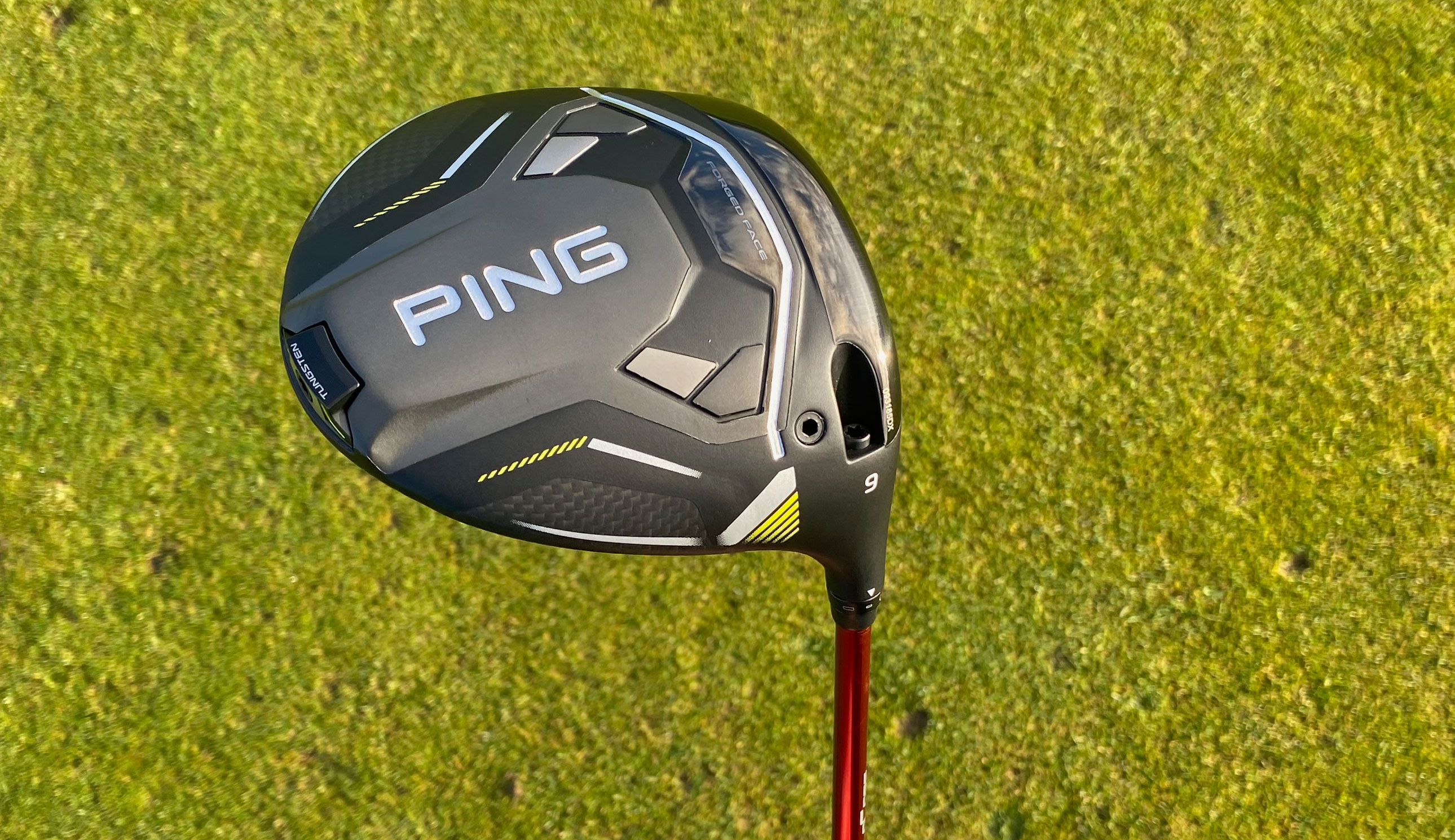
Specifications
Reasons to buy
Reasons to avoid
Ping added the G430 Max 10K to their expansive G430 range this year and it's truly impressive. How does the 10K differ to the other excellent G430 models? Well, according to Ping, this is the straightest and highest MOI (moment of inertia) driver it has made to-date, which is a bold claim given how good the G425 and G430. drivers have been.
Having tested it ourselves, we can say that this is not an outlandish statement as we were amazed by the performance. The stability and forgiveness are outstanding but, where this stands out against the best golf drivers, is that Ping have managed to combine this exceptional forgiveness with a low level of spin.
Indeed, our tester said that the G430 Max 10K was 'the most stable and forgiving driver head he has ever used,' such is the performance available. Given how many drivers he has tested this is some compliment. Additionally, our tester noted that ball speed on mis-hits barely dropped 2mph and, in terms of dispersion, the tee shots were all extremely tight. Visually it impresses too, and thanks to the larger footprint and stretched-out look at address, the 10K excels in pretty much every department!
- Read our full Ping G430 Max 10K Driver Review
Best value
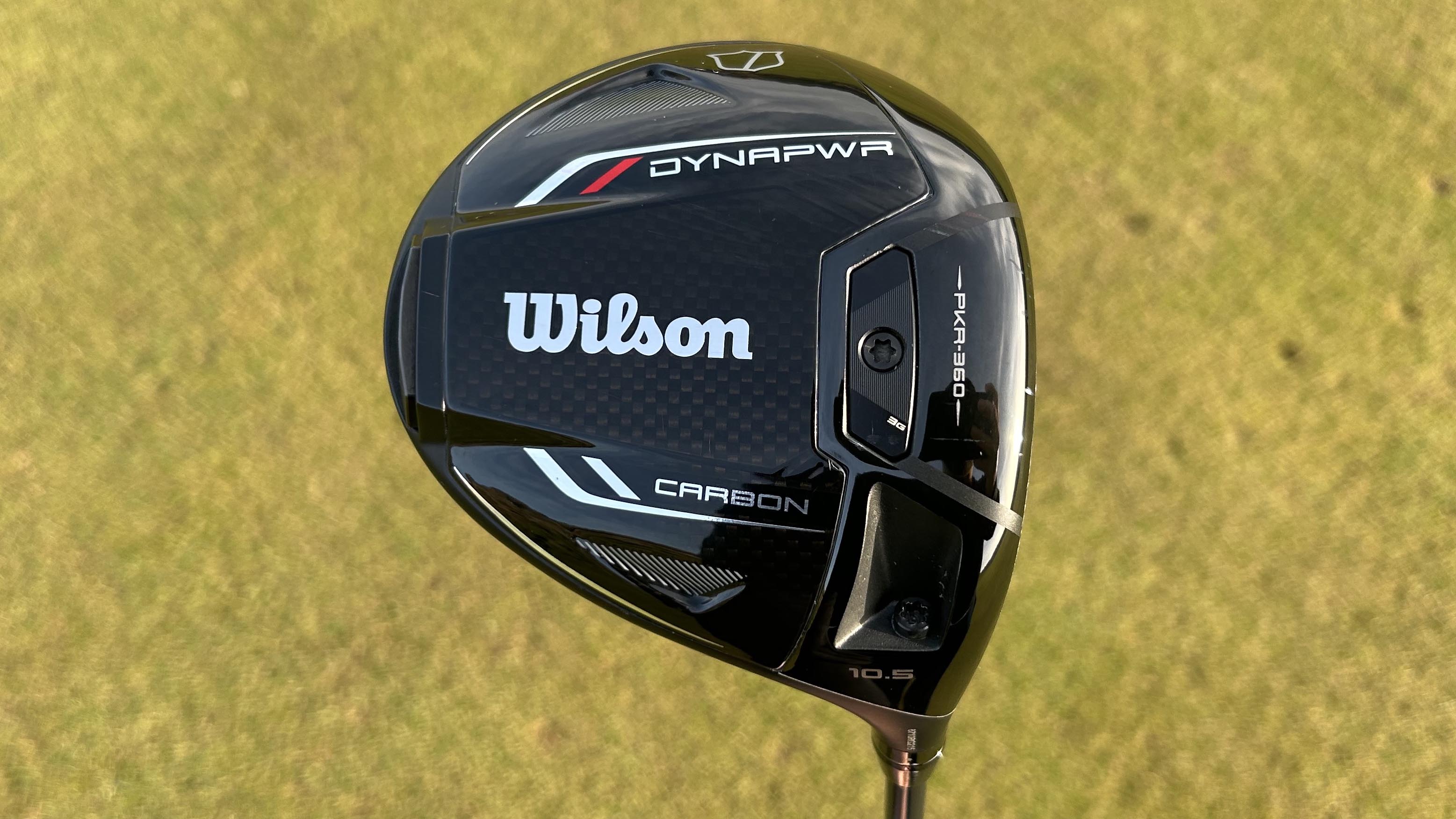
Wilson's Dynapower Carbon model is for the lower spin players
Specifications
Reasons to buy
Reasons to avoid
This is as good as it gets in the low-spin driver category, especially when you factor in the more friendly price tag than other options in this guide. Launch monitor data was impressive by itself, offering excellent ball speed numbers in particular.
The previous Dynapower drivers didn't really suit my eye - they looked a little clunky and, in my opinion, a little cheap as well. The new models now look premium and fast, promoting the carbon fibre-finish for a top quality look which will help players really fall in love with this driver.
Feel is also wonderful, feeling both solid and robust at impact. This driver maybe isn't as forgiving in other areas of the face compared to competing models on the market, but you're getting plenty of bang for your buck when you factor in the price.
- Read our full Wilson Dynapower Carbon Driver Review
Best looks

Specifications
Reasons to buy
Reasons to avoid
After testing the ZXi LS, I can say with confidence it's already one of my favorite low spinning drivers of 2025. Like the standard ZXi model, Srixon have made significant improvements with the LS in terms of looks, sound and importantly for the lower handicap golfers, ball speed.
It is the most difficult to hit of the three ZXi drivers, but boy does it sound and feel terrific. Ball speed numbers kept up with the leading low spinning drivers on the market in 2025, including the TaylorMade Qi35 LS and Cobra DS-ADAPT LS, whilst there are two interchangeable weights on the head that allow players to tweak and customize the weight of the head to play into their strengths. Did we mention this is a great looking driver, too?
In terms of the drivers on offer for the lower handicapper looking a low spinning, longer option, we really think the ZXi LS is on the same pedestal as the offering from the likes of Ping, Taylormade and Callaway. This is a consistent but brilliant driver that is well worth a test run.
- Read our full Srixon ZXi LS Driver Review
Best low spin
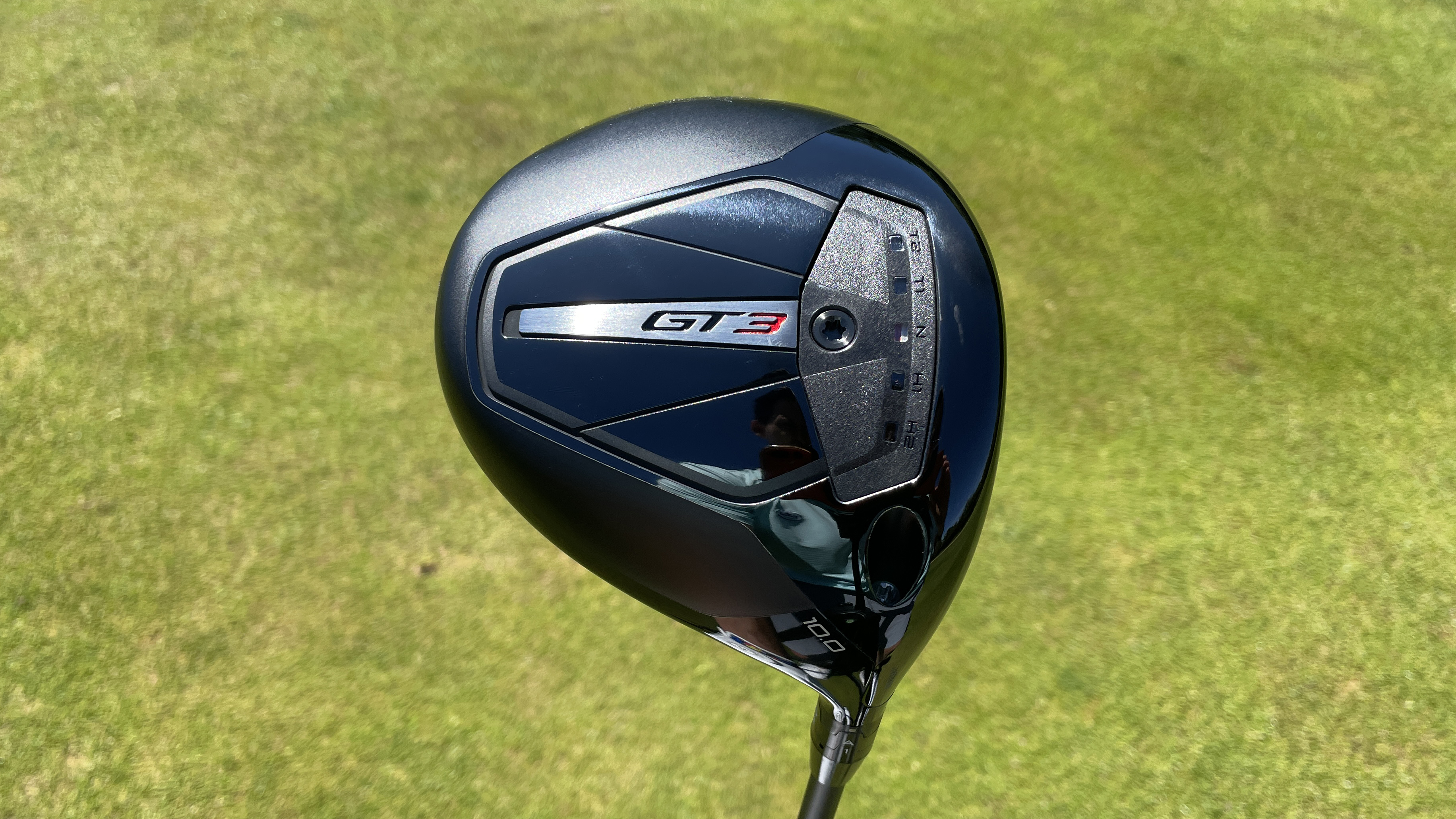
Specifications
Reasons to buy
Reasons to avoid
The most adjustable driver of the GT range, the GT3 strikes a sweet spot between forgiveness and low spin that will suit players of a range of handicaps - you don't have to play off single figures to get the best out of this driver. This is mainly thanks to a a new weight track that sits much closer to the face than on its predecessor the TSR3.
In testing, I used a Trackman 4 launch monitor and we were able to achieve a 173 mph ball speed with the GT3—an improvement from previous iterations. I also found it easy to shape and again, much like the GT2, aided my usual low, heel miss nicely because ball speed was retained. This is a really simple but beautiful club head to look at while standing at address as well - it's a non-controversial design but the simplicity leads into a feeling of premium quality, whilst it sits wonderfully square behind the ball.
There was also solid improvements in acoustics, forgiveness, aerodynamics too, and when you add all of these minor improvements up, you have a big leap forward, which the GT3, and indeed the GT range does in my opinion.
- Read our full Titleist GT3 Driver review
Best high launch
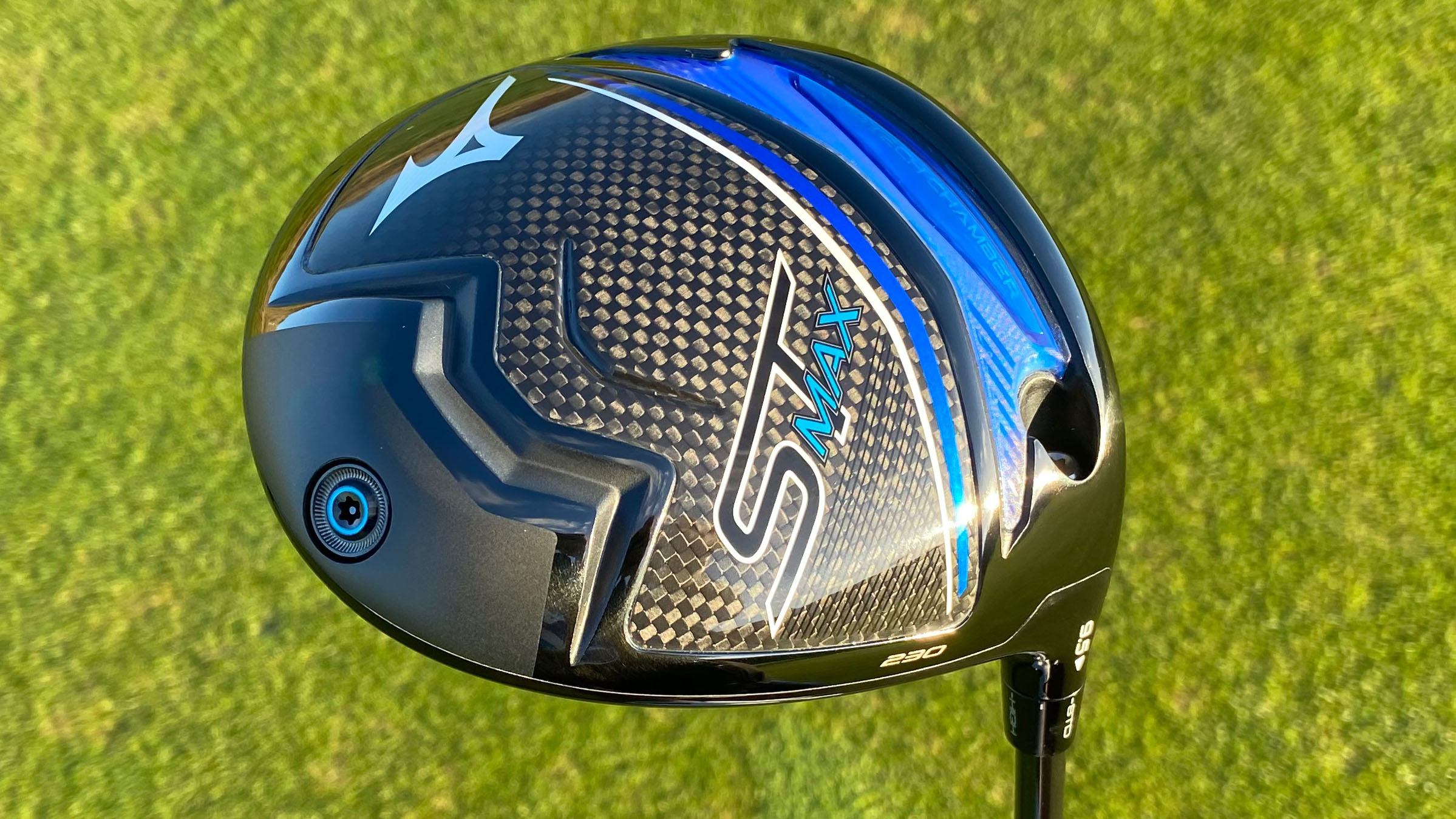
The ST-Max 230 is an underrated model that more should test
Specifications
Reasons to buy
Reasons to avoid
Mizuno are better known for making some of the best golf irons and lesser known for their fairway woods and drivers, but the Japanese brand have worked hard to improve the quality of their longer clubs and have succeeded in doing so.
Mizuno claim the ST-Max 230 is their most stable driver ever made and I can understand why after testing. They've achieved this thanks to a lower overall footprint of the driver head whilst keeping it within the maximum 460cc head size. This has allowed the boffins at Mizuno to relocate weight to more extreme locations, thus improving the MOI number and overall distance numbers as a result.
Mizuno loyalists will not be surprised to learn that this is a beautiful looking golf club - the blue and black color scheme really pops whilst the club sits pleasingly square behind the ball at address, inspiring confidence in players of all abilities.
In terms of the sound and feel, I really enjoyed what this driver had to offer. The feel at impact is more subtle than some of the other most forgiving drivers on the market and the acoustics follow the same pattern. This is a feature not always present in drivers designed for distance.
- Read our full Mizuno ST-Max 230 Driver Review
Best feel
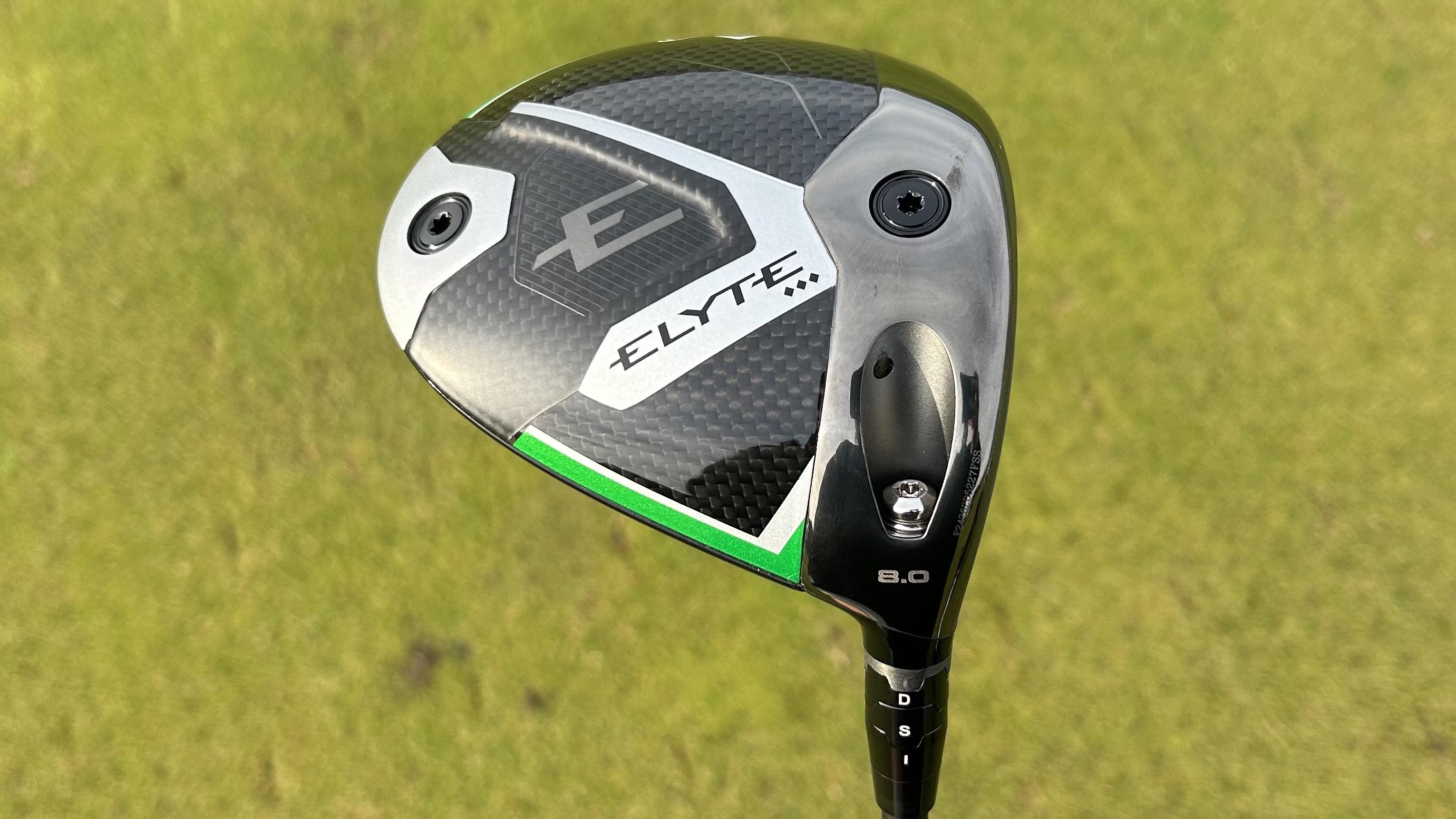
Specifications
Reasons to buy
Reasons to avoid
The Triple Diamond is the 'players' version of the Elyte family, favoring the more advanced golfers. When compared to other options in the low-spin category, this driver is as good as it gets in terms of feel.
We noticed significant upgrades in both forgiveness and workability during our testing which were matched up with impressive ball speed and launch numbers, ticking every box necessary in this category of driver. Launch monitor numbers weren't too far removed from last year's Paradym Ai Smoke Triple Diamond but there was a slight improvement and the real leap forward is slightly more unquantifiable.
Firstly, the feel is exceptional. It's a little muted and lower pitched than other drivers in the market but the ball felt like it melted into the face before exploding off towards the target. This is a driver that is a lot more playable than other 'players' drivers, meaning you shouldn't lose too much difference for shots that fail to find the middle of the club face. Advanced players should also be able to work their ball flights in both directions thanks to the increased workability. This is an exceptional driver and a must try for experienced drivers looking to upgrade this year.
- Read our full Callaway Elyte Triple Diamond Driver Review
Best sounding
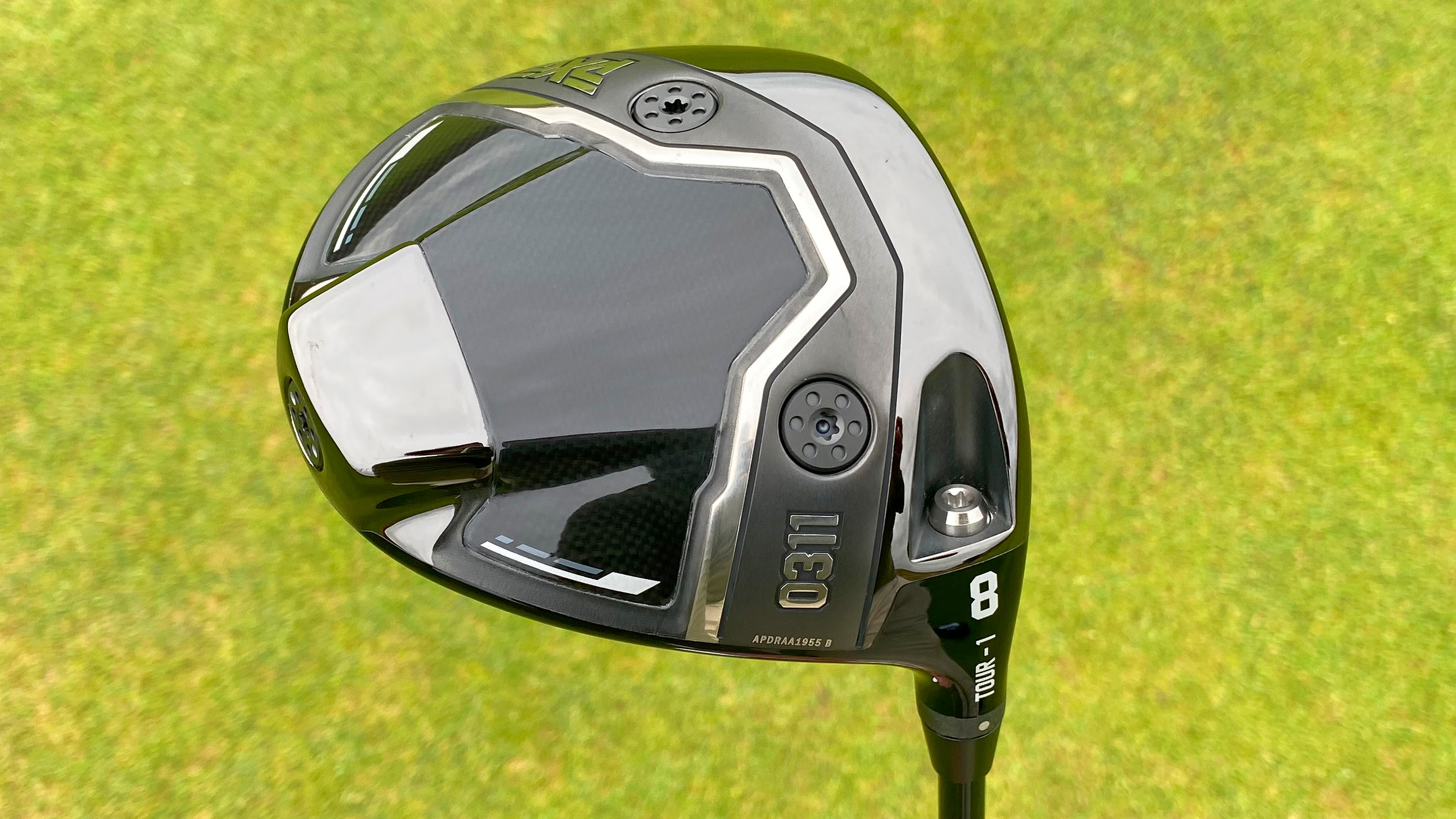
Specifications
Reasons to buy
Reasons to avoid
As with the standard Black Ops driver, the Tour version has AMF Technology as well as three adjustable weight ports. There are differences though. The Tour has a slightly larger sole pop out feature because of the taller, deeper face, and it also comes in different lofts.
The aesthetics are similar to the standard model, with the gloss finish, carbon crown and subtle, light grey accent graphics etc, but the Tour is slightly more pear shaped. It will be a matter of personal choice as to whether you prefer that or the more rounder look of the standard model. Both look exceptional.
The sound at impact is identical to the standard model and is absolutely glorious, whilst the performance in testing was impressive, as our tester barely had a single spin number over 2000 rpm throughout. When you match this with a relatively low launch angle, the result is an extremely low, penetrating ball flight that will provide extra distance due to the run it gets after landing.
- Read our full PXG Black Ops 0311 Tour-1 Driver Review
How we test drivers

Joe has worked in the golf industry for nearly 20 years in a variety of roles. After a successful amateur career being involved in England squads at every age group, Joe completed his PGA degree qualification in 2014 as one of the top ten graduates in his training year and subsequently went on to become Head PGA Professional at Ryder Cup venue The Celtic Manor Resort. Equipment has always been a huge passion of Joe’s, and during his time at Celtic Manor, he headed up the National Fitting Centres for both Titleist and TaylorMade. With Golf Monthly he oversees driver, iron and golf ball testing.
Our reviews and buyers' guides are built upon a rigorous testing procedure backed up by the knowledge and experience of the test team. The driver section is headed up by Joe Ferguson and assisted by Joel Tadman, who have both been testing golf clubs for years and play to a high standard. Between Joe, Joel and the rest of the team we are able to efficiently test the vast majority of the biggest product releases each year and convey the pros and cons eloquently.
Getting into specifics, Joe's driver testing is as structured as possible during both indoor and outdoor testing. Said testing typically begins inside as we crunch the numbers in as sterile an environment as possible using a FullSwing KIT launch monitor and TaylorMade TP5 golf balls with a minimum of 100 recorded shots. However, as golf is an outdoor pursuit, I also make sure to get out onto the course with each driver to put it to the test in the inevitable elements we all face. A driver review won't be published until I have ticked off at very least the minimum indoor testing and at least a further 18 holes of on course, situational testing.
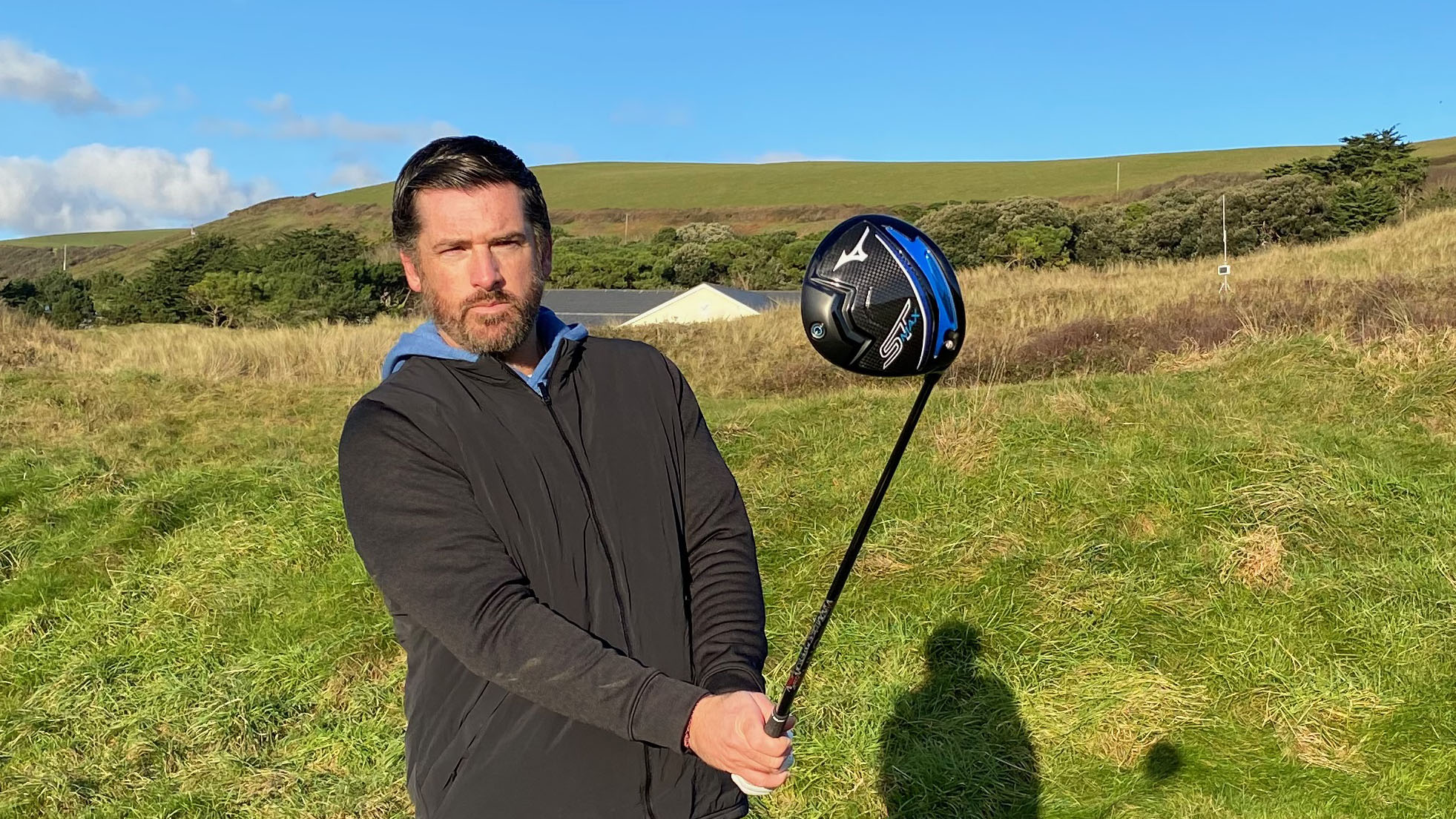
Joe Ferguson testing the Mizuno ST-Max 230 Driver
Outdoor testing often takes place at Saunton Golf Club in Devon which has top-notch practice facilities and is one of Golf Monthly's Top 100 golf courses as well. We try to test across multiple different golf courses in different weather conditions to get a true idea of how each driver performs in differing conditions. We want the most rigorous testing possible because only then can we get a full idea of how a club performs, therefore allowing us to then give the most informed buying advice possible.
We want to reiterate that we pride ourselves with our testing procedures that have been fine-tuned over well over a decade of equipment reviews. We appreciate the trust that we have built between our review team and our readership in that time, meaning our one and only goal when we review golf equipment is to deliver fully informed and bias free reviews - this means no brand can 'buy' a good review, nor can a manufacturer get preferential treatment over another - instead, we simply call it how we see based on our expertise, knowledge and passion for the game.
How to choose a new driver
What is your priority? - What is the most important thing for you when it comes to the driver? If accuracy is what you're after, go for something with a high MOI or adjustable weights to help alter spin and flight characteristics.
If distance is your primary focus (and it probably is if you are on this guide) and you swing the club pretty fast, look at a low-spinning driver to help ensure your ball doesn't balloon too much. If you're a slower swinger but want to increase distance, you may need something that spins more rather than less. For forgiveness, a larger head will probably suit you the best. Many brands make different models for different levels of player and some brands will have as many as four different heads.
Looks - You have to like how a golf club looks especially when looking down on the golf ball, and while it should be the primary reason for buying, let's face it, we all like something that is nice to look at when the head cover comes off. So make sure you go and take a look at how different models look in your hands and down by the golf ball.
Adjustability - Most models these days come with a degree of adjustability whether it be loft, weight movement, shaft and so on. Therefore have a think about how important adjustability is to you because you can change the characteristics of a club if you want to. Alternatively you can just keep things simple with other models as well.
Custom fitting - This is probably the most essential part of the driver buying process, no matter the driver you're after or how good you are at the game. A custom fit session will make sure you get the right flex and length of shaft, correct loft and correct head for your game, meaning you'll finish with a driver that will be as suitable as possible for you out on course.
Budget - Finally be aware of your budget. You can go for more premium models, such as the TaylorMade Stealth, or you can go for cheaper designs from Cobra instead. Wherever you fall in terms of price point, there is something for everyone.
FAQs
Which driver gets the most distance?
There is no one simple answer to this question because it will vary for every single golfer. But we have found there are specific models that do go further in our testing and they are included in our specific best drivers for distance guide.
How do I get more distance from my driver?
Again, this will depend on many factors including set-up of your driver as well as your swing type. When it comes to the latter, it's best to check with your pro but, when it comes to the driver, the optimal set-up for distance is best experimented with so you can find that balance of flight and length.
Subscribe to the Golf Monthly newsletter to stay up to date with all the latest tour news, equipment news, reviews, head-to-heads and buyer’s guides from our team of experienced experts.

Joe has worked in the golf industry for nearly 20 years in a variety of roles. After a successful amateur career being involved in England squads at every age group, Joe completed his PGA degree qualification in 2014 as one of the top ten graduates in his training year and subsequently went on to become Head PGA Professional at Ryder Cup venue The Celtic Manor Resort. Equipment has always been a huge passion of Joe’s, and during his time at Celtic Manor, he headed up the National Fitting Centres for both Titleist and Taylormade. He’s excited to bring his knowledge of hardware to Golf Monthly in the form of equipment reviews and buying advice.
Joe lives in North Devon and still plays sporadically on the PGA West region circuit. His best round in recent years came earlier in 2023 where he managed a 9 under par 63 at Trevose GC in a Devon & Cornwall PGA Tournament.
Joe's current What's In The Bag?
Driver: Switch between TaylorMade Qi35 and Callaway Elyte TD - both with Fujikura Ventus Black 6-X
Fairway wood 1: TaylorMade BRNR Copper Mini Driver - Fujikura Ventus Black 7-X
Fairway wood 2: Callaway Apex UW 17˚- Fujikura Ventus Black 9-X
Irons: TaylorMade P7CB 3-PW with Dynamic Gold Tour Issue X100 shafts
Wedges: Callaway Opus 50, 54, and 60 degrees - Project X LS 6.0 shafts
Putter: LAB Golf Oz.1 (zero shaft lean)
Ball: TaylorMade 2024 TP5x
Grips: Golf Pride Tour Velvet 60R
Bag: Vessel Player IV Pro DXR Stand
- Matt CradockStaff Writer
- Conor KeenanGear & Ecommerce Writer